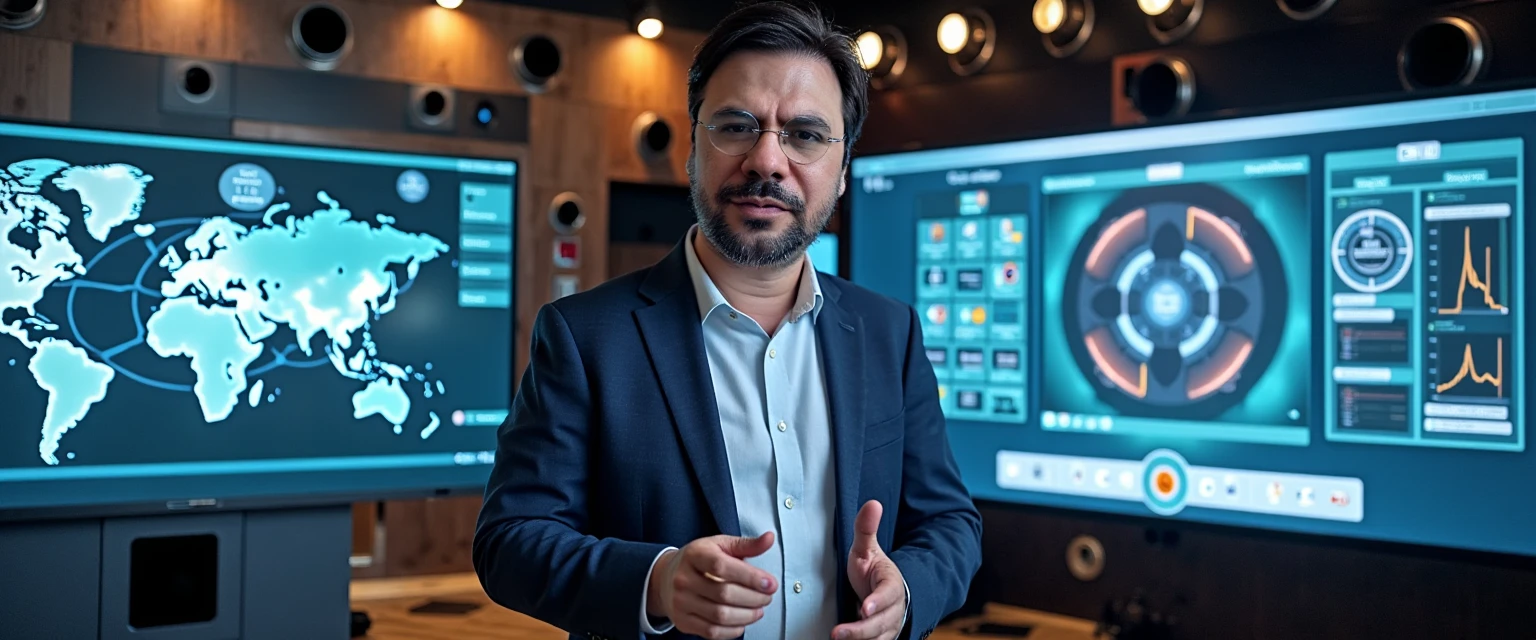The AI Revolution in 2025: Regulation, Innovation and Ethical Challenges
February 21, 2025 | by Matos AI

The AI Landscape in 2025: Between Advances and Regulations
Over the past few years, I have been closely following the evolution of Artificial Intelligence (AI) and its impact on the innovation and entrepreneurship ecosystem. The year 2025 is proving to be a crucial milestone in this journey, with significant developments that deserve our attention.
AI Regulation in the Brazilian Judiciary
A news story that caught my attention recently was the approval by the National Council of Justice (CNJ) of a normative act that regulates the use of AI in the Judiciary. This measure is an important step towards establishing clear guidelines on the implementation and use of technologies in the judicial system.
As an entrepreneur and technology expert, I see this regulation as a significant step forward. It not only promotes transparency, but also ensures that the use of AI in the judiciary is ethical and responsible. The creation of the National Committee on Artificial Intelligence in the Judiciary is particularly interesting as it demonstrates a commitment to ongoing oversight and guidance.
Join my WhatsApp groups! Daily updates with the most relevant news in the AI world and a vibrant community!
- AI for Business: focused on business and strategy.
- AI Builders: with a more technical and hands-on approach.
Legislation against the Misuse of AI
Another important development is the approval by the House of Representatives of a bill that criminalizes the manipulation, production or dissemination of fake content of nudity or sexual acts generated by AI. This legislation reflects the growing concern about the potential malicious uses of the technology.
In my experience working with startups and innovation, I have always emphasized the importance of ethics and responsibility in technology development. This law is a crucial reminder that as we advance in technological capabilities, we must equally advance in our ethical and legal considerations.
Technological Advances and their Implications
The launch of Grok 3 by Elon Musk’s team is a fascinating example of the rapid progress being made in AI. As someone who has supported the formation and development of over 10,000 startups, I can tell you that this type of advancement has the potential to revolutionize many industries.
However, as I often emphasize in my talks and consulting, it is crucial that companies and entrepreneurs not only embrace these technologies, but also reflect on their ethical and social impact. Grok 3’s ability to point out inconsistencies in legal documents, for example, raises important questions about the role of AI in critical decision-making.
AI in Science and Health
Advances in AI in science are particularly exciting. The Human Virome Program, which will use AI to map viruses in the human body, is a notable example. As an entrepreneur who has always sought to find the intersection of technology and social impact, I see this project as a potential game-changer in public health and personalized medicine.
Similarly, Google’s development of an AI tool to assist biomedical scientists is a significant step forward. This technology has the potential to dramatically accelerate scientific research, something all of us in the innovation community should be watching closely.
Challenges and Opportunities for Entrepreneurs
As someone who has been working on training entrepreneurs and developing innovation ecosystems for over two decades, I see the current landscape as full of opportunities and challenges.
Innovation Opportunities
1. Ethical AI Solutions: There is a growing demand for solutions that ensure the ethical and responsible use of AI. Startups focused on algorithm auditing, bias detection, and privacy protection have enormous potential.
2. AI in Healthcare: Mapping viruses and aiding biomedical research are just the tip of the iceberg. There are countless opportunities for startups that can apply AI to early diagnosis, drug development and personalized medicine.
3. AI Education and Training: With the growing adoption of AI, there is an urgent need for education and training in this area. Startups focused on professional training and technology education have a promising market.
Challenges to be Faced
1. Regulatory Compliance: With new laws and regulations emerging, startups will need to be vigilant to ensure their AI solutions are compliant.
2. Ethics and Responsibility: Developing AI solutions that are not only efficient, but also ethical and socially responsible, will be crucial.
3. Inclusion and Diversity: It is essential to ensure that the development and application of AI does not perpetuate or widen existing inequalities.
Conclusion: The Future of AI and Our Role
The AI landscape in 2025 is a reflection of rapid technological advancement and growing awareness of its impacts. As entrepreneurs, innovators, and leaders, we have a responsibility to guide this development in an ethical and inclusive way.
In my mentoring and consulting for startups and companies, I always emphasize the importance of balancing innovation with social responsibility. AI offers us powerful tools to solve complex problems, but it also challenges us to rethink our ethical and social frameworks.
The future of AI is promising, but it requires our constant attention and conscious action. I invite all entrepreneurs and innovators to reflect on how they can contribute to a future where technology not only advances, but also elevates our humanity.
If you are developing innovative AI solutions or looking to better understand how to apply it to your business, I would be happy to share more insights in one of my mentoring sessions or speaking engagements. Together, we can shape a future where technology truly serves the common good.
✨Did you like it? You can sign up to receive 10K Digital's newsletters in your email, curated by me, with the best content about AI and business.
➡️ Join the 10K Community here
RELATED POSTS
View all



